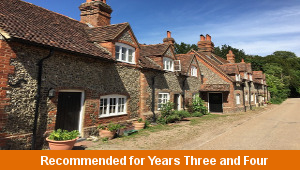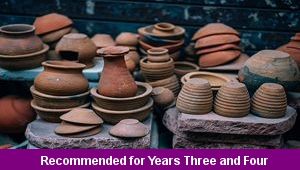English Year Three Planning Term Three
Discover some schemes of work, lesson plans, classroom worksheets and interactive activities to develop skills in English for Year Three in Key Stage Two covering a range of fiction, non-fiction and poetry topics and themes
Theme One
Traditional Tales
Investigate the structure and content of traditional tales, use persuasive writing to create adverts linked to narrative stories, identify words with common spellings and punctuate direct speech

(A) Story Changes
Read and adapt a traditional tale changing characters and settings, investigate word families to support spelling of common words and use inverted commas to punctuate direct speech based on The Snow Queen by Hans Christian Anderson

(B) Story Swaps
Practise writing and editing an alternative version of a traditional story by swapping characters, settings and plot events, spell families of words with prefixes and suffixes and punctuate direct speech in dialogue

(C) Story Fables
Explore and describe some of the different characters settings and events that can feature in traditional fables, identify families of words with common spellings and practise punctuating direct speech in sentences

(D) Story Adverts
Investigate and describe the use of persuasive language used in adverts linked to traditional tales, explore the spelling of words with the tion suffix and practise using headings to present information about different subjects in a text

(E) Story Snacks
Design adverts using persuasive language to sell merchandise based on traditional tales, investigate spellings of words with ion endings and link and co-ordinate sentence clauses using conjunctions

(F) Story Sales
Produce radio commercials and posters using persuasive language based on traditional stories, explore words with sion endings and use the conjunctions because and although to extend sentences
-

Classic Animal Stories
Investigate the structure and content of classic works of fiction by significant authors with animals as the main characters
-

Cities, Towns and Villages
Research and present the history of a range of different buildings and people that are part of the local community using a school exhibition
-

Recycling
Research and present some of the benefits and disadvantages that can be produced when recycling different materials at home and in school
-

Viking Pots
Develop and refine a range of different art and design techniques when working with clay to make pots that represent Viking culture and traditions
